PCMark 10 v2-1-2153
As we were working on this review, UL Benchmarks released its latest version of PCMark 10 that includes several new storage tests. We will use two of these benchmarks.
PCMark 10 Full System Drive Benchmark
The Full System Drive Benchmark uses a wide-ranging set of real-world traces from popular applications and common tasks to test the performance of the fastest modern drives fully.
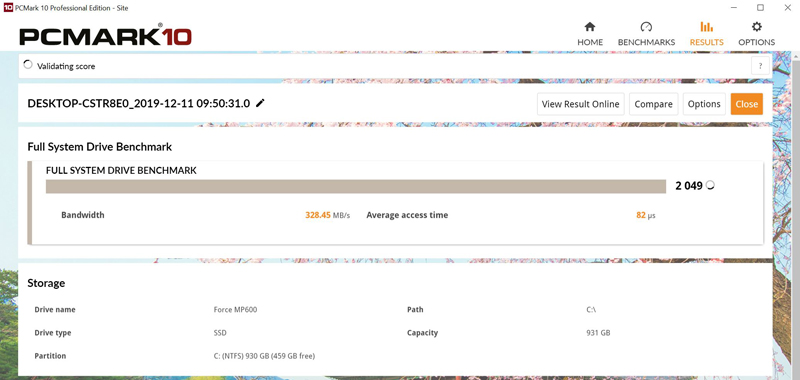
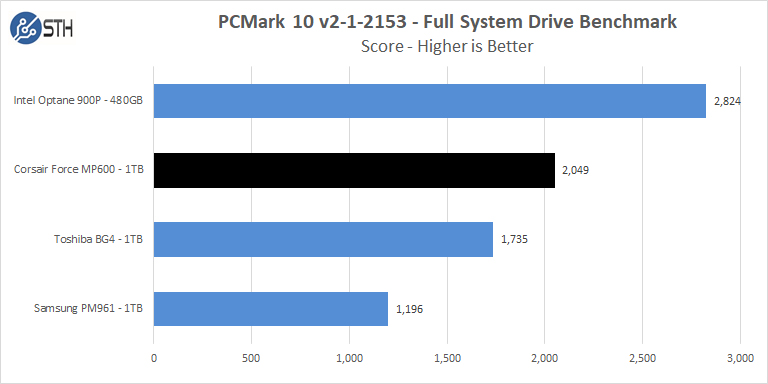
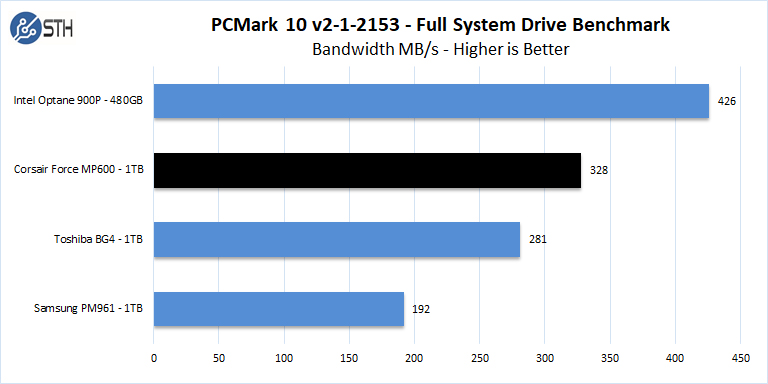
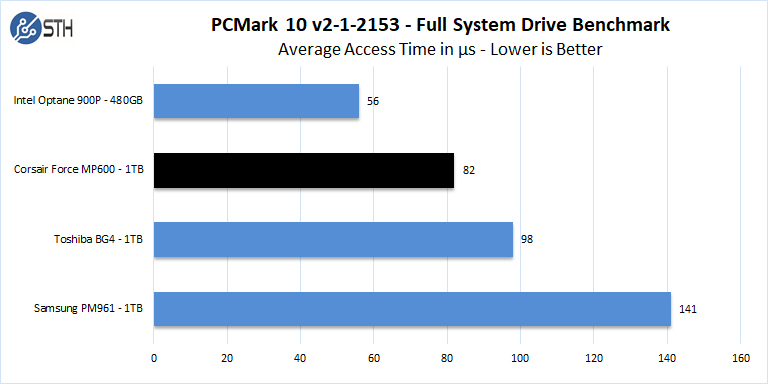
With the Full System Benchmark, we see the Intel Optane 900P achieves the best results due to its fast access times. The Corsair Force MP600 demonstrates excellent results over all other Gen3 drives.
PCMark 10 Data Drive Benchmark
The Data Drive Benchmark is designed to test drives used for storing files rather than applications. You can also use this test with NAS drives, USB sticks, memory cards, and other external storage devices.
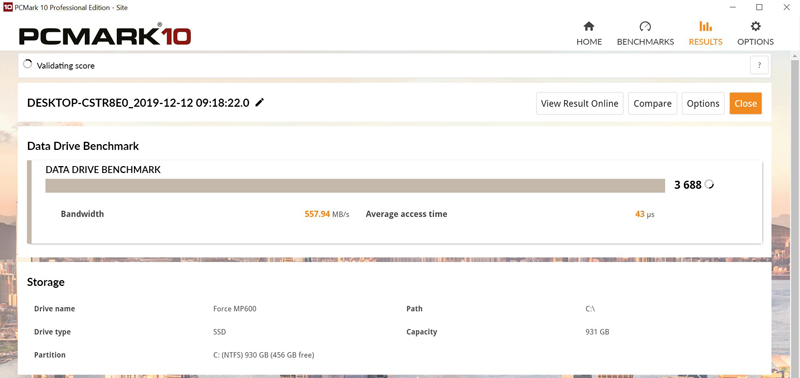
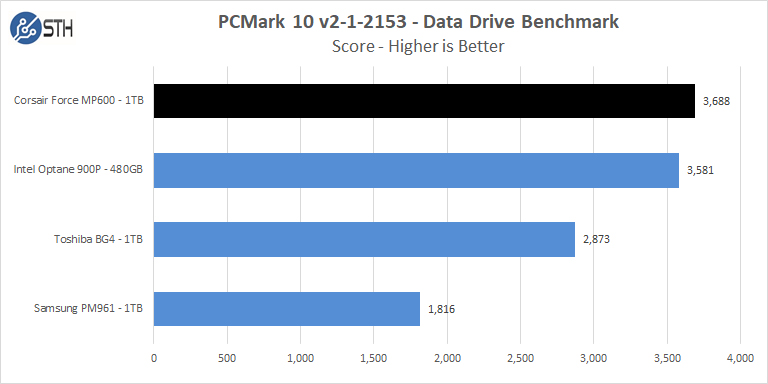
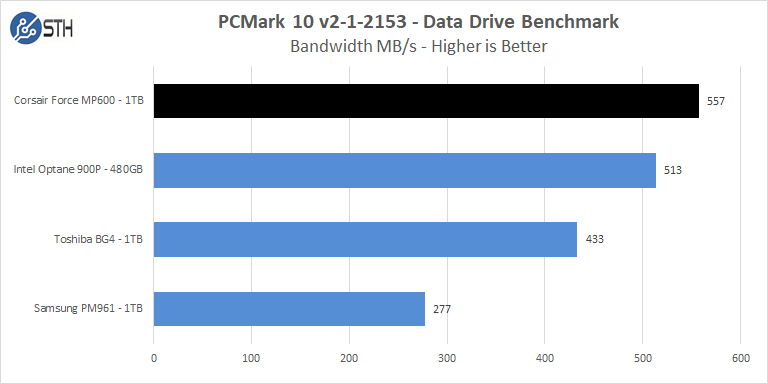
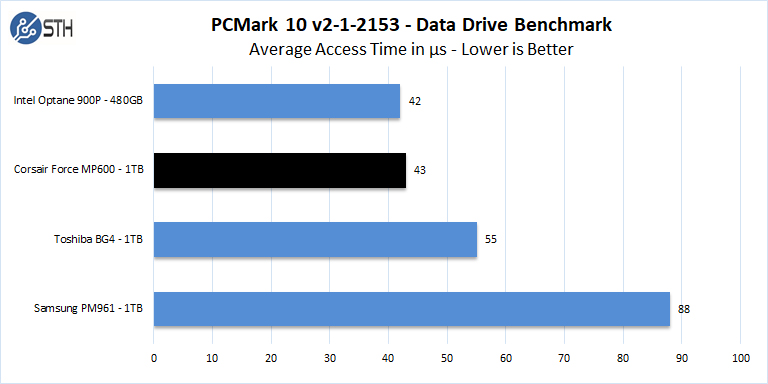
Using the Corsair Force MP600 as a Data Drive gives better results and achieves the tops scores except for access times, which is one off of the Intel Optane 900P. That is largely due to its sequential performance scores.
SPECworkstation 3.0.2 Storage Benchmark
SPECworstation benchmark is an excellent benchmark to test systems using workstation type workloads. In this test, we only ran the Storage component, which is 15 separate tests.
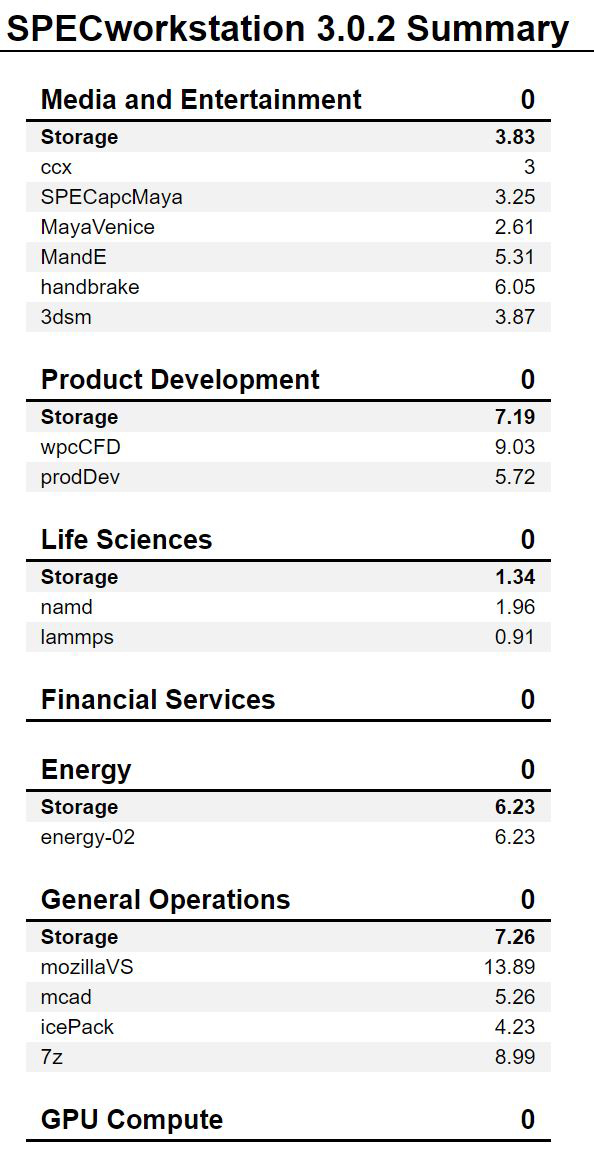
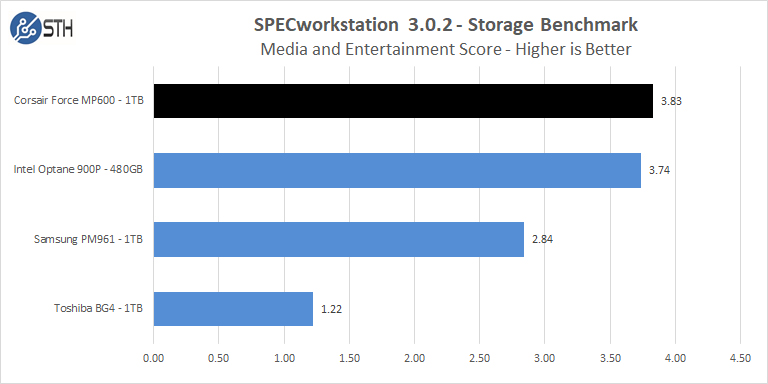
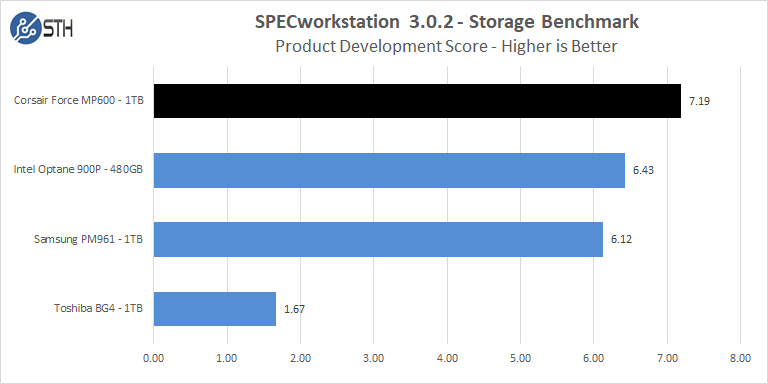
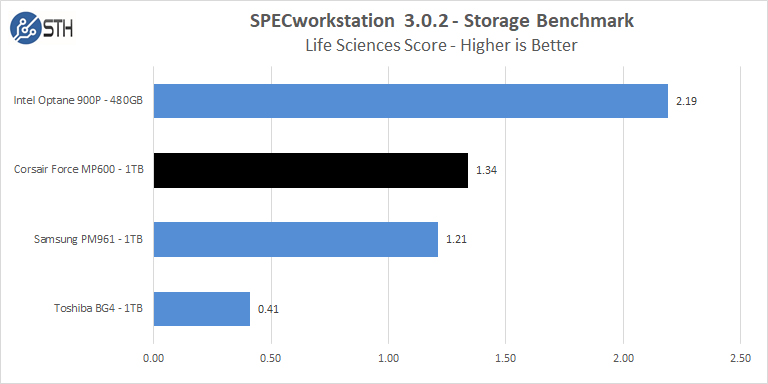
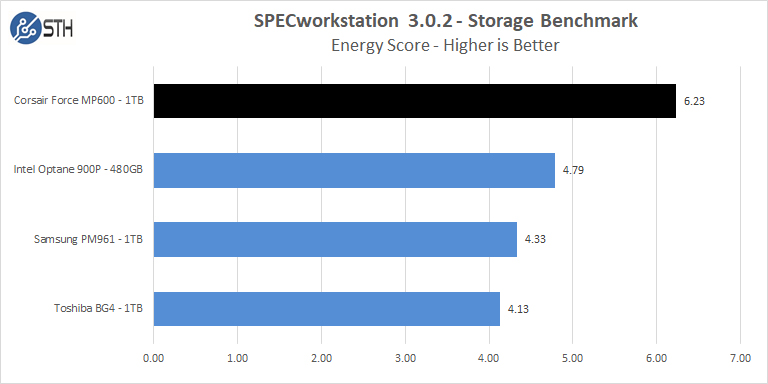
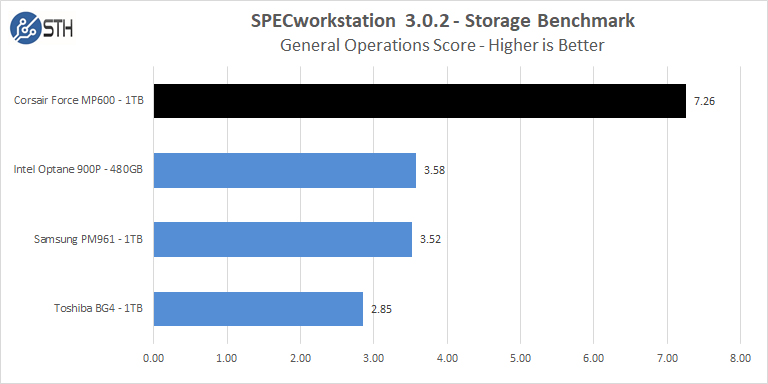
In all segments of the SPECworkstation benchmark except for Life Sciences, the Corsair Force PM600 exceeds all NAND-based Gen3 SSDs and shows a big performance boost.
Lastly, let’s look at drive temperatures and finish up with our conclusion.

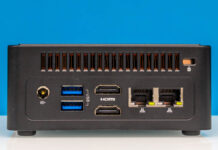

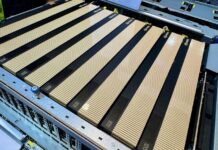
William, thanks for the review and also Merry Christmas.
However, looking at the results it occurs to me that what you (& other ssd/hdd testers) are actually measuring is the performance of the software tools. Example AS SSD tools says ~2000MB/s sequential read, and same page, Anvil Storage Utilities says ~4000MB/s sequential read.
Surely there is an objective reality underlying the test results, and that reality is located in the SSD. So we have a problem with the software I’d say.
Cheers!
Great review. Thank you for the early insight in to the new generation.
Given that sheer amount of speed and potentially in flight data, it would be helpful to understand the impact of power loss on these newer drives.
Here there are no hold up capacitors, but perhaps there are some firmware mitigations to ensure consistency. Or maybe not?
Perhaps an opportunity to combine with some updated ZFS testing.
emerth: Look at the SPEC benchmark results instead if you don’t like (understandably so) the pure synthetic benches.
The most relevent for desktop performance numbers from the synthetic tests to me are the ones that show the random read/write numbers for low (QD4 or less) queue depths.
I discovered this website while looking for that SSD review.
I’m bluffed by the quality and the accessibility of that review, I’m not an export but I got the main points and from what I’ve seen even for expert this is very complete.
Cheers. I’ll be checking more of your website. Indeed, I expect good given this review.